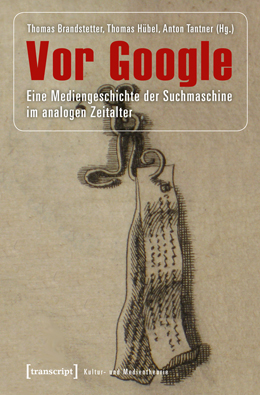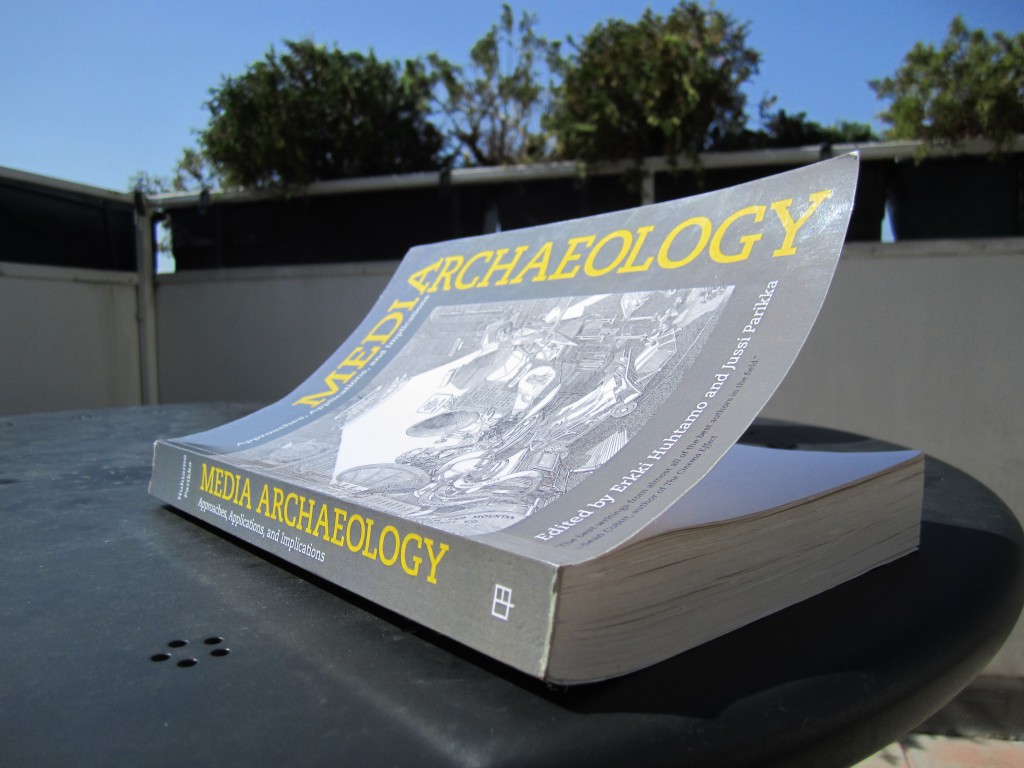 On the 9th of April the book “Vor Google. Eine Mediengeschichte der Suchmaschine im analogen Zeitalter” will be presented and discussed in the Wienbibliothek im Rathaus (in German). The book is edited by Thomas Brandstetter, Thomas Hübel & Anton Tantner and contains a number of essays on “analogue search engines” including bible citation indexes, state calendars of the 18th century and their hierarchical system, newspaper comptoirs, servants as crucial information centers, Vannevar Bush’s Memex and the politics of bibliometrics.
On the 9th of April the book “Vor Google. Eine Mediengeschichte der Suchmaschine im analogen Zeitalter” will be presented and discussed in the Wienbibliothek im Rathaus (in German). The book is edited by Thomas Brandstetter, Thomas Hübel & Anton Tantner and contains a number of essays on “analogue search engines” including bible citation indexes, state calendars of the 18th century and their hierarchical system, newspaper comptoirs, servants as crucial information centers, Vannevar Bush’s Memex and the politics of bibliometrics.
Since I’ll be giving a short review of the book and participate in the round table discussion (along with Jana Herwig and Stefan Zahlmann) I’m currently reading through the book.
The impression I immediately got while flipping through the pages is that thinking about search engines and their predecessors from a historic angle adds great value to common search engine research. Some of the past issues – e.g. how to organize indexes, the politics of search – still haunt present-day search tools, while others have only recently been introduced – e.g. the commercial dimension of search engines and the exploitation of user data. All in all there’s much to learn from juxtaposing contemporary and past search engines!
If you wanna participate in this exciting endevour please join us on the 9th of April, 7pm, Lesesaal der Wienbibliothek im Rathaus, Eingang Lichtenfelsgasse 2, Stiege 6 (Lift), 1. Stock, 1010 Wien. (= sounds complicated, but will hopefully be doable 😉 )
Here’s the book outline from the Wienbibliothek Website, where you can find more information:
Ein Alltag ohne digitale Suchmaschinen ist heute nur noch schwer vorstellbar. Dabei lassen sich zahlreiche Einrichtungen, Personen und Techniken ausmachen, die lange vor Google und Co ähnliche Funktionen übernommen haben – Staatshandbücher und Diener etwa, aber auch Bibliothekskataloge, Fragebögen oder Zeitungskomptoire. Welche strukturellen Ähnlichkeiten gibt es zwischen diesen früheren und den heutigen Suchmaschinen? Welche Utopien knüpften sich an die Suchmaschinen des analogen Zeitalters? Welche Formen von Kontrolle ermöglichten sie? Das vorgestellte Buch widmet sich diesen und weiteren Fragen und liefert damit nicht nur neue Erkenntnisse über die Medien der Vergangenheit, sondern vertieft auch die Analysen der gegenwärtigen medialen Lage.

